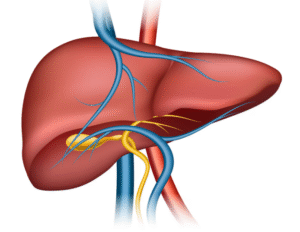Overview
Pediatric Autoimmune Neuropsychiatric Disorders (PANDs) are a group of conditions that occur in children and are believed to be triggered by an abnormal immune response. The most well-known form is PANDAS (Pediatric Autoimmune Neuropsychiatric Disorders Associated with Streptococcal infections). These disorders are characterized by the sudden onset of obsessive-compulsive behaviors (OCD), tics, and other neuropsychiatric symptoms following infections—most commonly strep throat.
What is Pediatric Autoimmune Neuropsychiatric Disorder?
Pediatric Autoimmune Neuropsychiatric Disorders are thought to result when the body’s immune system mistakenly attacks healthy brain cells, particularly in the basal ganglia, a brain region involved in behavior and movement control. This autoimmune reaction often follows a streptococcal (strep) infection but can also be triggered by other bacteria or viruses.
The two main forms include:
- PANDAS: Linked specifically to streptococcal infections.
- PANS (Pediatric Acute-onset Neuropsychiatric Syndrome): A broader category where the trigger may not be strep but other infections or environmental factors.
Symptoms
Symptoms often develop abruptly, sometimes overnight, and can include:
- Obsessive-compulsive behaviors (OCD)
- Motor and vocal tics
- Separation anxiety or general anxiety
- Irritability and emotional outbursts
- Changes in handwriting (dysgraphia)
- Sudden academic decline
- Depression
- Sleep disturbances
- Loss of appetite or restrictive eating
- Sensory sensitivities
Causes
The primary suspected cause is autoimmune inflammation following an infection, which leads the immune system to target the brain by mistake. Causes include:
- Streptococcal infections (most common in PANDAS)
- Mycoplasma pneumoniae
- Influenza virus
- Herpes simplex virus (HSV)
- Lyme disease
- Other bacterial/viral infections
- Genetic predisposition may also play a role
Risk Factors
Certain factors can increase a child’s risk of developing PANDs:
- Frequent strep infections
- Family history of autoimmune disorders
- Genetic susceptibility to immune system dysregulation
- Exposure to infections in school or daycare settings
- Previous history of tics or OCD
Complications
If left untreated or misdiagnosed, pediatric autoimmune neuropsychiatric disorders can lead to:
- Chronic obsessive-compulsive disorder
- School refusal and academic decline
- Social withdrawal or isolation
- Development of other psychiatric conditions (e.g., generalized anxiety disorder, depression)
- Strained family dynamics and caregiver stress
Prevention
There is no guaranteed way to prevent PANDs, but some strategies can help reduce risk:
- Prompt treatment of streptococcal and other infections
- Regular hygiene practices to prevent infection (e.g., handwashing)
- Monitoring for sudden behavioral or neurological changes
- Early screening in children with a family history of OCD or autoimmune disorders
- Prophylactic antibiotics (in some recurrent strep cases, under a physician’s guidance)
Treatment Options in Korea
South Korea offers high-quality, evidence-based care for pediatric neuropsychiatric disorders, including autoimmune-related ones like PANDAS/PANS. Treatment usually involves a multidisciplinary team including pediatricians, neurologists, psychiatrists, and immunologists.
1. Antibiotic Therapy
- Penicillin or azithromycin to eliminate residual streptococcal bacteria.
- Often the first-line treatment in confirmed PANDAS cases.
2. Anti-inflammatory Therapy
- Nonsteroidal anti-inflammatory drugs (NSAIDs) like ibuprofen.
- In some cases, steroids (e.g., prednisone) are prescribed to reduce brain inflammation.
3. Immunotherapy
- IVIG (Intravenous Immunoglobulin) and plasmapheresis may be considered in severe or treatment-resistant cases.
- Available in tertiary hospitals such as Severance Hospital, Seoul National University Hospital, and Samsung Medical Center.
4. Cognitive Behavioral Therapy (CBT)
- Used to manage OCD and anxiety symptoms.
- Often combined with Exposure and Response Prevention (ERP) therapy.
5. Psychiatric Medications
- SSRIs (Selective Serotonin Reuptake Inhibitors) for OCD or anxiety.
- Carefully managed due to possible sensitivity in PANDAS/PANS patients.
6. Nutritional and Family Support
- Family education and counseling play a crucial role.
- Diet and lifestyle adjustments may support overall immune function.













